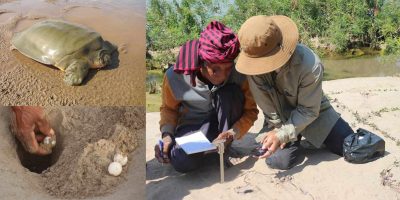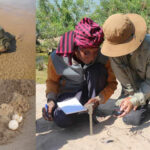Mohloai Mpesi
AS access to justice remains a problematic issue in Lesotho, the Ministry of Justice and Law has launched the country’s first-ever “Justice Needs Survey” to address this challenge.
The ministry held a week-long training program that concluded yesterday, for 21 enumerators and seven supervisors who will conduct the nationwide survey from tomorrow, January 20th, to February 10th, 2025.
In carrying out the survey, the enumerators will not visit every household but rather make a representative sampling of homes in each area. The collected data will then be cleaned and analysed.
The survey teams, consisting of the 21 enumerators and 7 supervisors, will form 7 teams comprising three members and one supervisor each to cover the country.
This 4-year government project is funded by the European Union through its Support for Reforms and Strengthening of Governance program in Lesotho.
In his opening remarks of the training workshop, the Ministry of Justice and Law Principal Secretary, Lira Ralebese, stated that the survey aimed to probe the public’s experiences with justiciable problems.
“The Justice Needs Survey is intended to investigate the experience of justiciable problems from the respective of those who face them,” Mr Ralebese said.
“This is a departure from administrative data that may look at the same problems but from the perspective of the institutions and professions that may play a role in their design and enforcement.”
The new nationwide survey aims to provide Lesotho’s policymakers with a clear understanding of the country’s justice and legal needs across different segments of society.
According to Mr Ralebese, the study’s findings would help define the scope of these needs and assist in mapping problem-solving patterns.
“The survey stands to benefit Lesotho and the Basotho people by collecting data that will inform the policymaking process on addressing identified needs and issues,” he said.
“It is anticipated that the results will be valuable for a wide spectrum of stakeholders, including policymakers, academics, researchers, the private sector, and civil society organizations.”
Mr Ralebese added that the data-driven insights from the survey will ultimately help the government and other decision-making bodies to more effectively address the justice and legal requirements of the Basotho people.
Chimwemwe Mangeni, the team leader of the Support for Reforms and Strengthening of Governance Programme in Lesotho, stated that the project was included in the financing agreement between Lesotho and the European Union.
Mr Mangeni explained that the programme was supporting the Lesotho government in the justice sector and governance, working with 16 institutions on various activities.
He said this Justice Needs Survey was part of the financing agreement to assess people’s experiences and needs regarding access to justice, especially for vulnerable groups like women, children, and minorities.
The survey would collect data through enumerators, group discussions, and key informant interviews, he said.
Mr Mangeni said the findings will support the government of Lesotho in developing policies and laws to improve access to justice for all citizens.
“The survey is people-centred, focusing on how people access justice, so that stakeholders can use the findings to create solutions,” Mr Mangeni stated.
He said the goal was to enhance access to justice for everyone in Lesotho based on the policies, laws, and interventions developed from the survey results.
Palesa Mabea, Senior Statistician at the Ministry of Finance and Development Planning, said the ministry would assist the Ministry of Law and Justice in conducting the study on the country’s justice system based on international standards.
“This is the first study of its kind in the country and the SADC region,” Ms Mabea said.
“We all know there is a big problem with the administration of justice in this country. It’s not just about the courts, but also the people who intervene in conflicts to resolve them.”
Ms Mabea said the study would examine issues such as the lengthy duration of court cases and the disregard for public complaints at police stations.
The goal is to understand whether the public is satisfied with the administration of justice and identify the challenges faced by marginalized groups.
“After gauging public opinion, we will conduct another study, this time visiting those who administer justice, including the Commissioner of Police, Commissioner of Correctional Services, Chief Justice, National Assembly, and Senate, to get their perspectives on the administration of justice,” Ms Mabea said.
Post Views: 258















